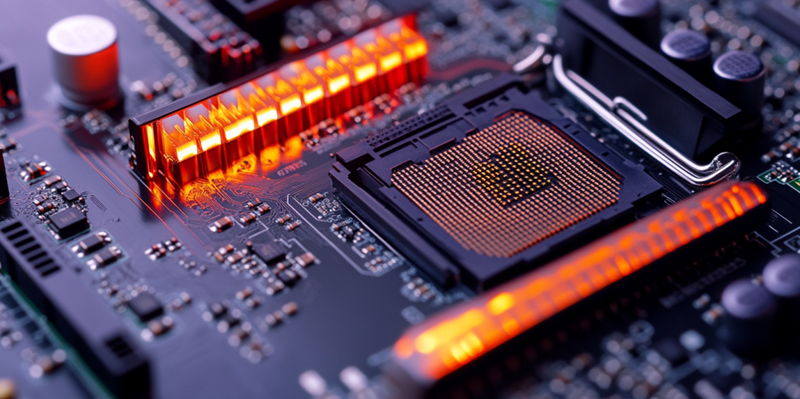Intel has made waves in the technology community with the unveiling of its new Core Ultra 225F CPU, a move signaling significant advancements over its predecessor, the Core i5-14400. Benchmarked on Geekbench, the Core Ultra 225F revealed performance metrics that comfortably outshine the i5-14400, catching the attention of tech enthusiasts who are always on the lookout for the next big thing. This new processor, designed for mainstream use, has already found a home powering the Acer Aspire TC-1860. Both the Ultra 225F and its predecessor feature ten-core configurations, split between six performance cores and four efficiency cores. However, the Ultra 225F stands out with its higher base and turbo frequencies, clocked at 3.30GHz and 4.89GHz respectively, compared to the i5-14400’s 2.5GHz base and 4.7GHz turbo frequencies.
Performance Metrics and Specifications
The Core Ultra 225F’s technical specifications and performance metrics have fueled discussions on its potential impact on the mainstream processor market. With a thermal design power (TDP) of 65W, the Ultra 225F fits seamlessly into the energy-efficient category. Moreover, its need for a new LGA 1851 socket motherboard signifies Intel’s commitment to forward compatibility and evolution in processor technology. The reported Geekbench scores for the Ultra 225F—2,653 for single-threaded and 13,028 for multithreaded operations—show a marked improvement over the i5-14400, which scored 2,394 and 11,166, respectively. This leap in performance emphasizes the impact of higher frequencies and possibly other architectural enhancements that have been integrated into the Ultra 225F’s design.
Such improvements offer tangible benefits for everyday computing tasks, professional applications, and gaming scenarios. Users can expect faster load times, better multitasking capabilities, and overall smoother performance. However, it’s important to remember that while benchmark scores provide a useful performance snapshot, real-world usage can vary. Benchmark results are only part of the equation, and comprehensive, in-depth reviews from trusted sources like PCMag will be crucial in providing a more holistic understanding of the CPU’s true capabilities and limitations.
A Look at Intel’s Ultra Lineup Evolution
Reflecting on Intel’s history, the Core Ultra 9 285K, a top-tier CPU, encountered considerable criticism as it initially failed to meet next-gen expectations. This has led to some apprehension about the Ultra 225F’s release. However, signs of improved performance metrics and excitement surrounding upcoming Consumer Electronics Show (CES) announcements spark renewed hope for the Ultra series. These indications suggest Intel has learned from past experiences, refining the performance and reliability of their latest processors.
The Core Ultra 225F, boasting promising benchmark results and impressive technical capabilities, might set new standards in the mainstream processor market. Positioned as a successor, it aims to surpass the abilities of its predecessor. If these initial findings prove accurate, the Core Ultra 225F could establish itself as a strong contender in 2024. Both enthusiasts and professionals will be eagerly awaiting further reviews and real-world performance evaluations to confirm these early positive impressions.
In summary, the final verdict on the Core Ultra 225F’s impact and status in 2024 remains uncertain. Nonetheless, all signs indicate it could be a remarkable contender. The advancements and promising benchmark results suggest a positive future for Intel’s Ultra series.

